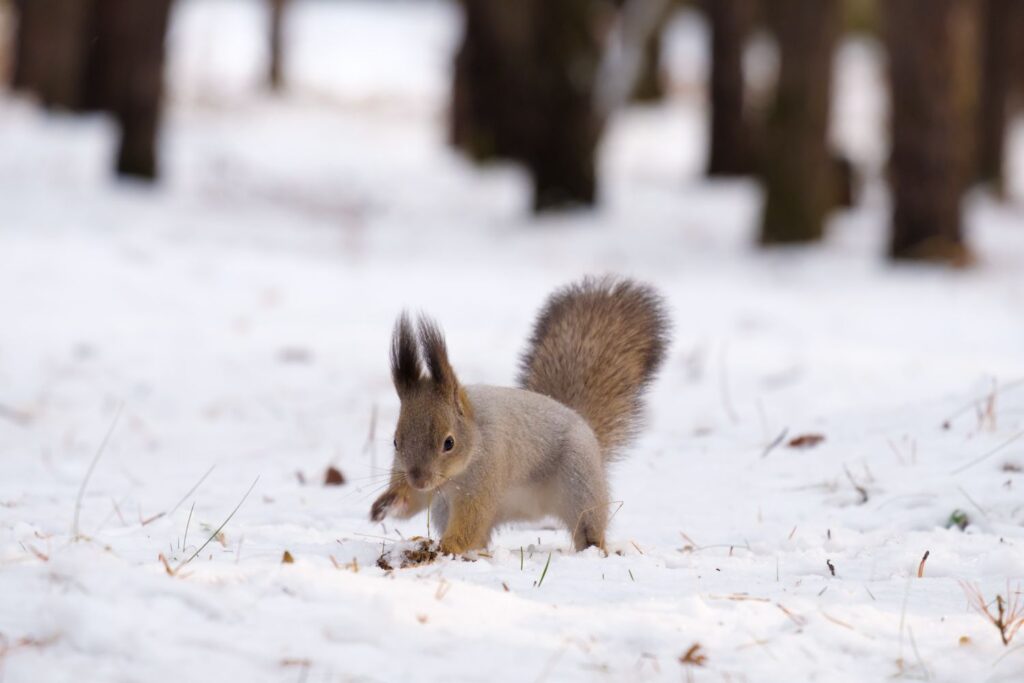
As winter blankets the landscape, your garden becomes a vital haven for wildlife seeking nourishment and warmth. Here’s a guide on how to feed and support these essential garden guests during the cold season:
- Seed Sensation: Invest in high-energy birdseed blends containing sunflower seeds, millet, and suet. Hang bird feeders strategically around your garden, ensuring they are easily accessible yet protected from the elements.
- Suet Delight: Suet cakes are a winter delicacy for birds, rich in fats and proteins to sustain them in the cold. Hang suet feeders from tree branches or specialized suet cages to attract a variety of bird species.
- Nuts and Nut Butters: Offer a mix of unsalted nuts and nut butters, like peanut butter, in designated feeders. These provide essential fats and proteins for birds and squirrels, enhancing their winter diet.
- Fruitful Treats: Provide a feast of fruits such as apples, berries, and grapes. String fruit slices on branches or place them in designated feeding stations to entice a diverse range of wildlife.
- Mealworm Morsels: A favorite among insect-eating birds, mealworms are a protein-packed option. Scatter them on platforms or incorporate them into your bird feeders for a tasty winter treat.
- Watering Wonders: Ensure a fresh water source is available, as natural water supplies may freeze. Use a heated bird bath or regularly refresh water dishes to offer a reliable drinking spot for garden inhabitants.
- Hedgerow Buffet: Planting evergreen shrubs and trees creates shelter and additional food sources for wildlife. Berries and seeds from these plants provide sustenance during the winter months.
- Bee Benefaction: Craft a simple bee watering station by filling a shallow container with water and adding pebbles for the bees to land on. This helps them stay hydrated when natural water sources are scarce.
- Critter-Friendly Compost: Leave a portion of your garden untouched for overwintering insects and small mammals. Fallen leaves and plant debris can provide vital cover and insulation.
- Regular Refills: Consistently monitor and replenish your feeders. Wildlife relies on these food sources, especially during periods of extreme cold or snow cover.
By catering to the diverse dietary needs of your garden’s animal residents, you not only contribute to their survival but also create a thriving ecosystem that enriches the overall health and biodiversity of your outdoor space. Embrace the wonders of winter wildlife feeding, and watch as your garden becomes a lively refuge during the frosty months.
